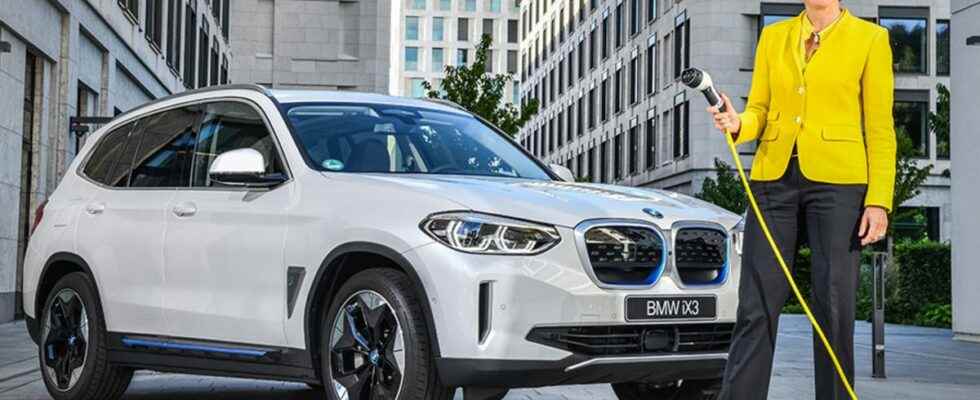In a previous publication, we mentioned the Plug&Charge charging technology dedicated to electric vehicles, adopted for the first time on plug-in hybrid vehicles from Mercedes.
Another German manufacturer interested in Plug&Charge, BMW, which will integrate this functionality into its electric range from mid-2023. Except that, like its compatriot and competitor, the Munich firm wanted to distinguish itself.
Rather than focusing solely on a single Plug&Charge compatible charging network, namely Ionity (of which BMW is one of the members of the consortium), the German manufacturer wanted to diversify the offer. It also allows owners to “digitally store in the vehicle their multiple current charging contracts from at least five different providers and to use the charging stations of these operators”.
However, there are two conditions to be met: that these access providers are registered in the BMW system and that they are part of Hubject’s eRoaming network.
Created two years ago in Germany by BMW, Daimler, Bosch, Siemens and the energy companies EnBW and RWE, Hubject facilitates the exchange of information between the charging station and the electricity supplier, but also between the electric vehicle and its driver. Last February, this joint venture launched the Open Plug&Charge Protocol (OPCP), a protocol offering free access to Plug&Charge technology in order to democratize this new ecosystem.
Moreover, in addition to some 1,000 companies, around fifty countries such as Austria, Belgium and Finland have joined this new protocol, which according to Hubject “increased compatibility between all market players”. It remains to be seen whether the various French players present in the Gireve project (interoperability platform) will adopt this protocol or stand apart.
The question still arises of the usefulness of such a protocol, knowing that there is already an ISO 15118 standard for Plug&Charge. BMW said that new updates (ISO-15118-2 and ISO 15118-20) will be integrated in 2023.
